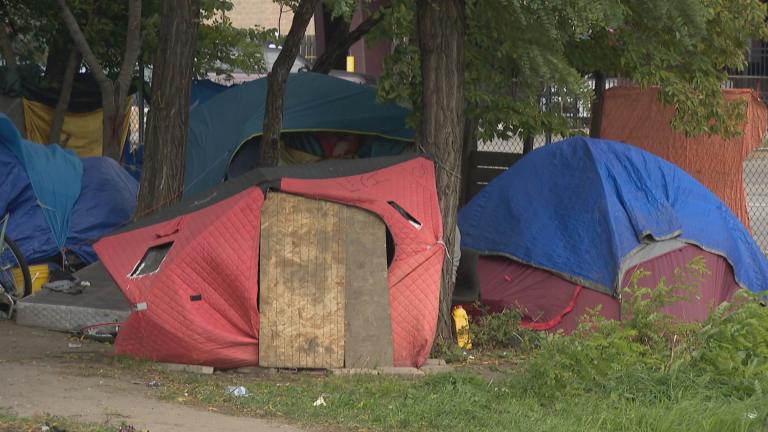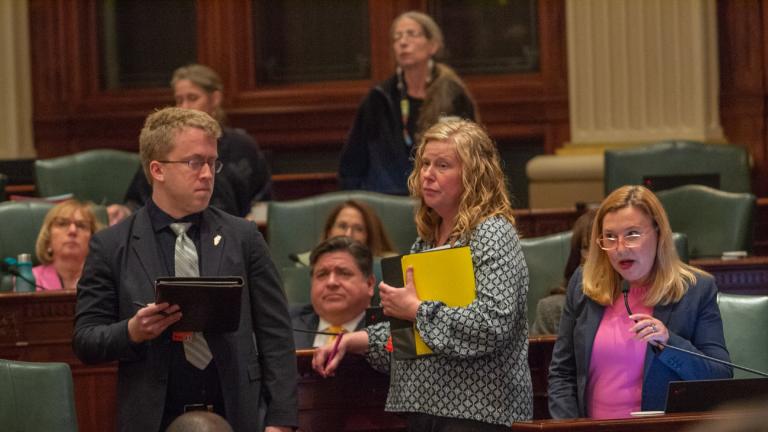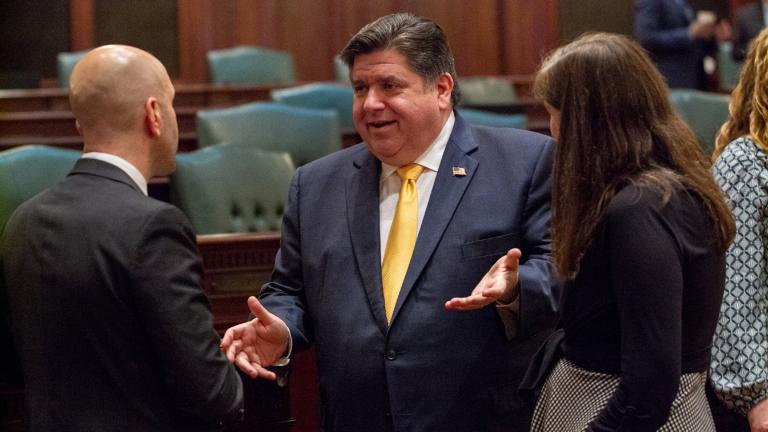No matter how much money a person makes, Illinois residents all pay the same income tax rate. A pair of new proposals could change that by taking aim at the bank accounts of high earners.
Gov. J.B. Pritzker, one of the state’s wealthiest residents, tried to move the state in 2020 to a graduated income tax plan. He put before voters a constitutional amendment that would have allowed the state to abandon the requirement for a flat tax and to instead create various tax rates, which would be levied on households based how much money taxpayers made. Supporters, in a campaign largely funded by Pritzker, called it the “Fair Tax.”
State Sen. Robert Martwick is well aware voters rejected the plan, largely he said, due to a lack of trust in government. But, as was first reported by Crain’s Chicago Business, Martwick wants to try again because he said that what the Fair Tax hoped to accomplish remains the same.
“We are on course, a crash course, with our finances,” Martwick said. “Eventually we have massive pension debt that we have to pay down; we have commitments to fund public education. And the reality of it is, is that our revenue trajectories long-term don’t match our debt trajectories. And so if we don’t do something — whether this is the best idea of not — then we’re putting the next generation in the position where they’re going to be forced to make draconian cuts just to get by.”
Martwick said it’s not simply about taxing the wealthy more; his goal would be to provide tax relief to middle and working class families, who have been particularly squeezed since the start of the COVID-19 pandemic.
“I think the middle class is overtaxed,” Martwick said. “And all I want to do is, I want to take that flat tax structure and tip it a little. I want to ask those people that have done so well and made so much money in our economy to pay a little bit more ... . The middle class is the consumer class. They drive our economy. We need them to be healthy in the state of Illinois.”
Martwick said he does not yet have proposed brackets or rates, but he said the structure will be different from the 2020 version.
Pritzker, in Switzerland for the World Economic Forum, is not inclined to stake his second term on another attempt, though.
“That’s not something that I’m focused on this session,” he told reporters Thursday on a conference call from Davos, Switzerland.
Martwick is undeterred and said that another of his signature initiatives, an elected school board, took several attempts and was largely grassroots-driven. Martwick said he believes Pritzker is still ideologically on board with a progressive tax.
A governor’s signature is not needed to put a constitutional amendment question on the ballot; that takes 60% of legislators in each chamber.
State Rep. Will Guzzardi, a Democrat from Chicago, also backed the graduated income tax in 2020. Now, though, he's pitching a so-called “wealth tax.”
Guzzardi described it as similar in concept to property taxes. As the value of a home increases, the property tax burden goes up. His wealth tax would work the same way, but it would apply only to the financial assets of those worth $1 billion or more.
“We’re going to say to billionaires with all their assets — which aren’t so much properties as stocks, financial instruments, investments — we’re going to value their assets, and then when those assets go up in value, we’re going to tax them on the increase in value,” Guzzardi said. “So just like the property tax that we pay, this is a tax on billionaires’ property, which is stocks and financial instruments.”
Guzzardi said the Illinois Department of Revenue already has a decent accounting of these assets and that a qualifying Illinois resident’s assets would be taxed wherever they’re based.
If wealthy individuals try to skirt the tax, he said, it would be considered fraud.
Guzzardi said his plan would work like another form of an income tax.
Illinois’ income tax rate for individuals of 4.95% would be charged to what he said qualifies as billionaires’ income.
“When you hear Elon Musk or Jeff Bezos has made billions, tens, hundreds of billions of dollars during the pandemic, they didn’t make that in income like wages the way that you and I make income,” Guzzardi said. “They made that through the growth of their assets. The value of their stocks went up. That’s what they do to make money. That’s income for these guys. So, we want to tax that just like the income that the rest of us make.”
Guzzardi projects his proposal could raise between $200 to $500 million annually.
His plan calls for any revenue to go into a new “Working Families” state fund, with the money going to three specific purposes: ending homelessness, paying for universal child care and fully funding public education.
The Tax Foundation’s Jared Walczak said capital gains are already taxed — but only when stocks, bonds or other investments are sold.
“That’s because until you sell it, you don’t actually have any more liquid value,” Walczak said. “You don’t have something to pay it with. And, of course, there’s fluctuation over time … . Stock can go up one year and down another year. And when you sell it, you don’t get the benefit of every time it went up without also having the offset of when it went down. This would assess you every year on the gains, and ... you would end up paying multiples of what you would if you only paid at the end when you sold the asset.”
He said taxing unrealized gains could require someone to sell off shares or partial ownership in a company to be able to pay the tax.
Even if billionaires presumably have the money to afford it, such a tax would impact only a small group of taxpayers directly. But Walczak said the burden would be widespread.
“Because you would see a reduced return to investments,” Walczak said, “a lot of investments are suddenly not worth doing anymore. They don’t have enough return for it to be worth your time and your money with this higher rate of taxation. It also can lead to significant out-migration because these are significant additional tax burdens that could lead people to leave Illinois and not pay any taxes into the state anymore.”
Guzzardi said he’s not concerned about people fleeing, particularly given that even as he put forth his plan Thursday, legislators from states including California and New York did so, too, as part of a multi-state “Fund Our Future” campaign.
But Walczak said there are plenty of other states billionaires could, and would, take up residence in even if the wealth tax concept goes forward in multiple states.
Illinois’ new legislative session is just getting under way. Neither the graduated income tax nor the wealth tax plan have been formally introduced in Illinois yet. They’re still concepts, rather than proposals upon which lawmakers can vote.
Follow Amanda Vinicky on Twitter: @AmandaVinicky








